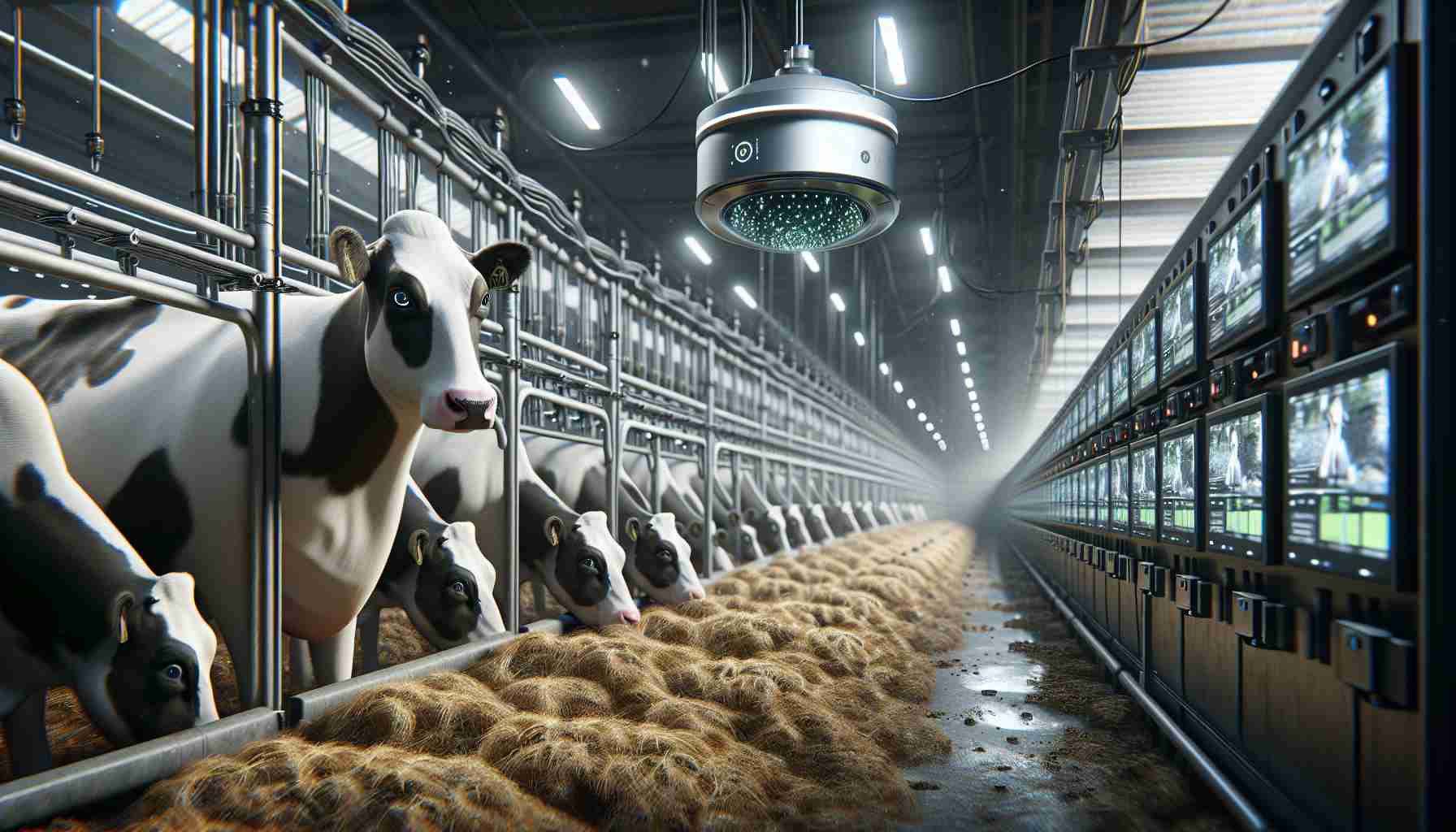Imagine freeing farmers from sleepless nights by embracing cutting-edge technology. Nikon, renowned for its innovation in imaging, is developing an advanced AI system to monitor pregnant cows around the clock. This ingenious solution employs cameras and sophisticated algorithms to predict when a cow is about to give birth, instantly notifying farmers.
Instead of relying on human intervention, Nikon’s system uses multiple cameras to constantly observe cows in birthing pens. By analyzing the animals’ behavior through AI, the system achieves a remarkable 95% accuracy rate in detecting imminent calving signs. Overcoming initial challenges, such as false alerts, Nikon fine-tuned the system through extensive data collection and AI learning.
The AI’s journey began in the fall of 2021, becoming progressively sophisticated by identifying numerous behavioural patterns related to calving. This breakthrough technology not only eases the physical demands on farmers but also promises wider applications across different livestock, reducing the immense burden for farmers.
This innovative system, primarily developed for 100-cow operations in Japan, holds the potential for scalability through the addition of more cameras and systems capable of distinguishing numerous cows. Globally, farms like Ever. Ag’s Maternity Warden have already seen success in improving birth outcomes by minimizing dystocia and stillbirth risks.
As AI becomes integral to agriculture, it compiles and analyzes data in real-time, offering instantaneous insights. This leap from reactive to predictive AI allows farmers to enhance efficiency and productivity, ensuring healthier, happier livestock.
How AI-Powered Farms Are Revolutionizing Agriculture
The intersection of technology and agriculture is paving the way for a new era in farming, where artificial intelligence (AI) is proving to be a crucial asset. Beyond the Nikon system monitoring pregnant cows, the broader application of AI in agriculture presents a multitude of opportunities and challenges that could redefine farming practices globally.
Revolutionary Changes in Livestock Management
While Nikon’s AI system is optimized for observing pregnant cows, similar technologies are being deployed across various livestock sectors. These systems, equipped with high-definition cameras and advanced machine learning algorithms, are adept at analyzing animal behaviors that could indicate health issues or stress. By predicting not only birthing events but also outbreaks of diseases, this technology allows for timely interventions, reducing livestock mortality and enhancing animal welfare.
Advantages of Smart Farming
One of the primary advantages of integrating AI into farming is the significant reduction in manual labor. As AI systems take over tasks like monitoring and analyzing data, farmers can focus on strategic decisions and management. This shift not only enhances productivity and efficiency but also allows for more sustainable farming practices by minimizing the use of resources like water and feed, guided by data-driven insights.
AI also opens doors to precision agriculture, where every square meter of farmland receives tailored attention based on soil health, crop requirements, and weather predictions. This precise allocation of resources leads to increased yields and reduced environmental impact.
Challenges and Controversies
Despite its potential, the implementation of AI in farming is not without controversy. One of the primary concerns is the cost of adopting such technologies. Small-scale farmers, particularly in developing countries, may find it challenging to invest in AI systems due to financial constraints. Furthermore, the shift towards autonomous systems raises questions about job displacement and the future role of humans in agriculture.
Moreover, as with any AI development, data privacy and security are significant concerns. The vast amounts of data collected by AI systems need stringent safeguards to prevent misuse.
Is AI the Future of Farming?
The evolution of AI in agriculture prompts the question: how far can we go? While current systems focus on monitoring and data collection, future advancements might see AI taking on more decision-making roles, potentially controlling entire farms autonomously.
Will this lead to more sustainable and efficient food production systems? Or will it widen the gap between large-scale industrial farms and small, family-run ones? The answers to these questions will shape the future of our food systems.
To learn more about AI advancements in other industries, visit link name.
As AI continues to evolve, its role in agriculture will undoubtedly grow, offering both exciting possibilities and challenges. What remains clear is that AI has the power to fundamentally transform how we cultivate food, care for animals, and manage resources, heralding a new chapter in the story of agriculture.
